Related Research Articles

Sir Raymond Douglas Davies is an English musician. He was the lead vocalist, rhythm guitarist and primary songwriter for the rock band the Kinks, which he led with his younger brother Dave on lead guitar and backing vocals. He has also acted in, directed and produced shows for theatre and television. Known for focusing his lyrics on rock bands, English culture, nostalgia and social satire, he is often referred to as the "Godfather of Britpop", though he disputes this title. He was inducted into the Rock and Roll Hall of Fame as a member of the Kinks in 1990. After the dissolution of the Kinks in 1996, he embarked on a solo career.
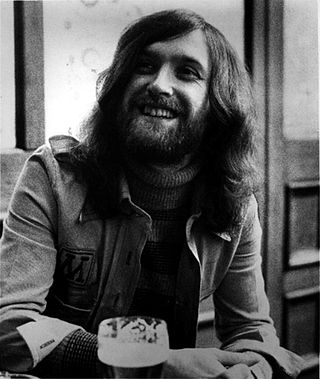
David Russell Gordon Davies is an English guitarist, singer and songwriter. He was the lead guitarist and backing vocalist for the English rock band the Kinks, which also featured his older brother Ray. Davies also sometimes undertook writing and/or lead vocals duties within the band, for example on songs such as "Death of a Clown", "Party Line", "Strangers" and "Rats". He has also embarked on a solo career, releasing several singles during the late 1960s and has since released eight solo albums.

Lola Versus Powerman and the Moneygoround, Part One, commonly abbreviated to Lola Versus Powerman, or simply Lola, is the eighth studio album by the English rock band the Kinks, released on 27 November 1970. A concept album, it is a satirical appraisal of the music industry, including song publishers, unions, the press, accountants, business managers, and life on the road. Musically Lola Versus Powerman is varied, described by Stephen Thomas Erlewine as "a wildly unfocused but nonetheless dazzling tour de force", containing some of Ray Davies's strongest songs.

"A Well Respected Man" is a song by the British band the Kinks, written by the group's lead singer and rhythm guitarist Ray Davies, and originally released in the United Kingdom on the EP Kwyet Kinks in September 1965. It was also released as a single in the US and Continental Europe.
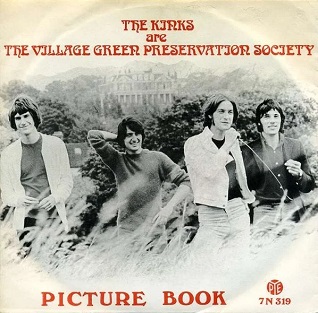
"The Village Green Preservation Society" is a song by the English rock band the Kinks from their 1968 album The Kinks Are the Village Green Preservation Society. Written and sung by the band's principal songwriter Ray Davies, the song is a nostalgic reflection where the band state their intention to "preserve" British things for posterity. As the opening track, the song introduces many of the LP's themes, and Ray subsequently described it as the album's "national anthem".

"Lola" is a song by the English rock band the Kinks, written by frontman Ray Davies for their 1970 album Lola Versus Powerman and the Moneygoround, Part One. The song details a romantic encounter between a young man and a possible cross-dresser or trans woman, whom he meets in a club in Soho, London. In the song, the narrator describes his confusion towards Lola, who "walked like a woman but talked like a man", yet he remains infatuated with her.

Fings Ain't Wot They Used T'be is a 1960 West End musical comedy about Cockney low-life characters in the 1950s, including spivs, prostitutes, teddy-boys and corrupt policemen. The work is more of a play with music than a conventional musical. The original play, by Frank Norman, who though born in Bristol lived his adult life in London, was intended to be a straight theatrical piece, but was supplemented with music and lyrics by Lionel Bart, who also grew up in London's East End.

Think Visual is the twenty-second studio album by the English rock band the Kinks, released in 1986. It peaked at #81 on the Billboard chart.

"Apeman" is a 1970 song by the English rock band the Kinks. It was written by Ray Davies and appears on the album Lola Versus Powerman and the Moneygoround, Part One. Written as a call to return to nature amidst the crowding and industry of the city, the song features calypso stylings. Like its predecessor, "Lola", it had to have a lyric re-dubbed for commercial release.

Low Budget is the eighteenth studio album by English rock group the Kinks, released in 1979. Following the minor success of their 1978 album Misfits, the band recorded the majority of the album in New York rather than London. Unlike the more nostalgic themes of many Kinks albums prior to Low Budget, many of the album's songs allude to contemporaneous events. Musically, the album is a continuation of the band's "arena rock" phase, resulting in a more rock-based sound and more modern production techniques.

"Father Christmas" is a song by English rock band the Kinks, released in 1977.

In the United Kingdom, a spiv is a petty criminal who deals in illicit, typically black market, goods. Spivs were particularly active during the Second World War and in the post-war period when many goods were rationed due to shortages.
Robert Westerby, was a writer of novels and screenwriter for films and television. An amateur boxer in his youth, he wrote many early magazine articles and stories centred around that sport. As a writer of screenplays, he was employed at Disney's Burbank studio from 1961 until his death in 1968.

"Come Dancing" is a 1982 song written by Ray Davies and performed by British rock group the Kinks on their 1983 album State of Confusion. The song was inspired by Davies' memories of his older sister, Rene, who died of a heart attack while dancing at a dance hall. The lyrics, sung from the perspective of an "East End barrow boy," are about the boy's sister going on dates at a local Palais dance hall.

"Picture Book" is a song by the English rock band the Kinks from their 1968 album The Kinks Are the Village Green Preservation Society. Written and sung by Ray Davies, the song's lyrics describe the experience of an ageing narrator flipping through a photo album reflecting on happy memories from "a long time ago". Recorded in May 1968, its cheerful sound is defined by the jangle of an acoustic twelve-string guitar and a disengaged snare drum. In continental Europe, the song was issued as the B-side of the album's lead single, "Starstruck", in November 1968. The same single was issued in the United States in January 1969, though it failed to appear in any charts.
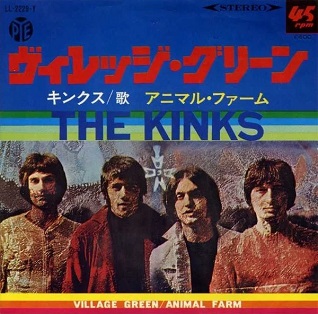
"Village Green" is a song by the English rock band the Kinks from their 1968 album The Kinks Are the Village Green Preservation Society. Written and sung by the band's principal songwriter, Ray Davies, the song was first recorded in November 1966 during the sessions for Something Else by the Kinks (1967) but was re-recorded in February 1967. Both the composition and instrumentation of "Village Green" evoke Baroque music, especially its prominently featured harpsichord played by the session keyboardist Nicky Hopkins. Unlike most of the band's late 1960s recordings, it employs real orchestral instruments, including oboe, cello, viola and piccolo, as arranged by the English composer David Whitaker.
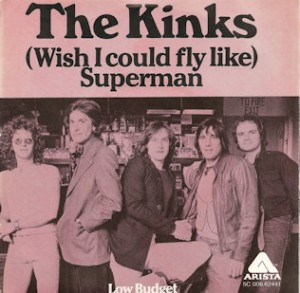
"(Wish I Could Fly Like) Superman" is a song written by Ray Davies that was first released on the Kinks' 1979 album, Low Budget. The song, inspired by Superman: The Movie, employs a disco beat and lyrics that describe the singer's wish to be like the fictional character Superman. The song's disco style was created as a response to Arista Records founder Clive Davis's request for "a club-friendly record," despite Ray Davies' hatred of disco.
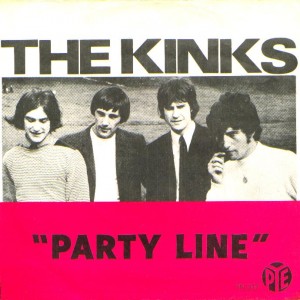
"Party Line" is the opening track from the Kinks' 1966 album, Face to Face. The songwriting is credited to Ray Davies. On one of the earliest covers of the album, the song is credited R.Davies - D.Davies.

"You Can't Stop the Music" is a song by the British rock band The Kinks. The song, appearing on the band's 1975 album Soap Opera, was written by the band's principal songwriter, Ray Davies.
"Monica" is a song by the English rock band the Kinks from their sixth studio album, The Kinks Are the Village Green Preservation Society (1968). Written and sung by Ray Davies, the song was recorded sometime between late 1967 and May 1968. The song features congas and a syncopated rhythm, indicating Davies's continued interest in calypso music. Its lyrics are a serenade for a prostitute and were partly inspired by Dylan Thomas's radio drama, Under Milk Wood (1954), though Davies kept the lyrics deliberately subtle to avoid a radio ban. Retrospective commentators have disputed the song's level of thematic cohesion with the others on Village Green.
References
- 1 2 Oxford English Dictionary accessed 13 Dec 2010
- ↑ Benney, M. (1936). Low Company. London: P. Davies
- ↑ Robert Westerby (1937). Wide Boys Never Work. London: Arthur Barker
- ↑ People, 22 June 1947
- ↑ Daily Mirror, 14 October 1947.
- ↑ The lyrics read "For even wide boys, hoods and spivs / Have got the right to live."
- ↑ "Why England boss Bobby Robson is looking for wide boys", Daily Mirror , 6 April 1984, p.30
- ↑ "Hey presto, defenders were held and the French wide boys streaked over twice", Daily Telegraph , 3 March 2003